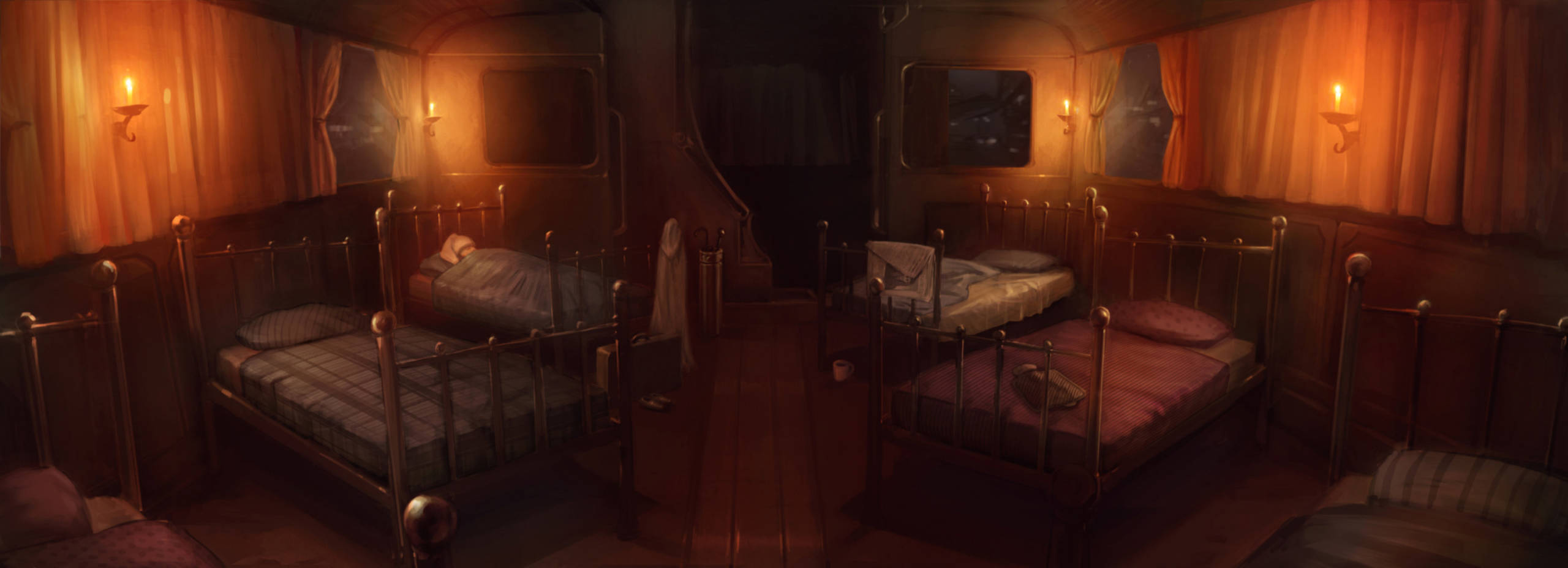A purple, triple-decker bus, it has seats during the day and beds at night. It is not particularly comfortable, and I would advise against ordering hot drinks even if offered, because the bus’s habit of leaping from one destination to another at a moment’s notice can result in a lot of spillage.
The Knight Bus is a relatively modern invention in wizarding society, which sometimes (though it will rarely admit it) takes ideas from the Muggle world. The need for some form of transportation that could be used safely and discreetly by the underage or the infirm had been felt for a while and many suggestions had been made (sidecars on taxi-style broomsticks, carrying baskets slung under Thestrals) all of them vetoed by the Ministry. Finally, Minister for Magic Dugald McPhail hit upon the idea of imitating the Muggles’ relatively new ‘bus service’ and in 1865, the Knight Bus hit the streets.
While some wizards (mainly pureblood fanatics) announced their intention of boycotting what was dubbed ‘this Muggle-esque outrage’ in the letters page of The Daily Prophet, the Knight Bus proved hugely popular with most of the community and remains busy to this day.
Author’s note
The Knight Bus was so-named because, firstly, knight (with a ‘k’) is a homonym of night, (the period from dusk until dawn) and there are night buses running all over Britain after normal transport stops. Secondly, ‘knight’ (with a ‘k’) has the connotation of coming to the rescue, of protection, and this seemed appropriate for a vehicle that is often the conveyance of last resort.
The driver and conductor of the Knight Bus in Harry Potter and the Prisoner of Azkaban are named after my two grandfathers, Ernest and Stanley.



